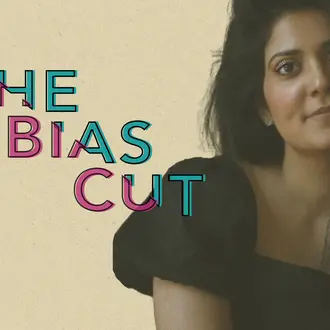“It’s not what you know, but who you know” says the old adage, but new research shows when it comes to business referrals, gender can matter a great deal.
Mabel Abraham, PhD ’15, spent two years reviewing years of records from a referral-generating organization where entrepreneurs share contacts, pitch their services, and win new business. Her findings help explain the disproportionate results achieved by women in social networks, notably the disparity in receiving referrals from colleagues.
There’s some good news: Abraham found men and women in these networking groups seem to do business with each other equally, and that benefits of increased social network opportunities for women in business are real. She also found that women are as likely as men to ask for new business referrals and pitch new business.
But when it came to referring colleagues to others — friends, family and clients — women came up short in being connected to new business. Abraham found the gap is largely driven by male-dominated fields, where women women received fewer referrals than men in the same field.
Abraham calls this “anticipatory third-party bias” to explain when group members “expect that a client, friend, or family member has a preference for men over women, they disproportionately give referrals to male rather than female network group members.”
“It’s a tricky term, calling it ‘bias,’” Abraham said, because it is not necessarily an overt preference of the referrer on gender, but having a real or perceived impression of someone else’s expectations that the position is usually done by a man. “It could be that the person they’re referring them to might expect a man, or be surprised or thrown off by a woman.”
Unique access
Key in Abraham’s research is access to six years of records of actual referrals and interactions between over 2,300 members of 31 small business entrepreneurial referral groups in the organization. She also attended meetings of three groups over the course of two years. The records were a wellspring of raw data, as was the ability to focus on changes when a member departed and was replaced by someone of a different gender in the same field.
“A lot of the research done in social networks uses surveys, which can be intrusive and less natural,” she said. “Because [referral groups] were already collecting data, I could observe the patterns without influencing it.”
“I was expecting more widespread gender inequality,” she said. “Just looking at the research, one would expect more widespread gender differences.”
Abraham is no stranger to challenging widely held assumptions through research.
In earlier research she questioned the long-held assumption that more women in management would bring gains in equity in pay and opportunity. She studied 68 bank branches, examining pay and position.
She found that gender equity was greater among employees in the lowest ranks, but that the impact of female managers was limited. Overall, she found that “jobs are equally segregated by gender regardless of whether the manager is male or female.”
For Abraham, her latest study reveals as many questions as it provides answers. Next, she’s hoping to “look at the referral maker, do men and women do it similarly? Are they equally likely to follow these patterns?”
Abraham’s paper, “Explaining unequal returns to social capital among entrepreneurs,” was named the Louis R. Pondy Best Dissertation Paper by the Organization and Management Theory Division of the Academy of Management. The paper also won second prize in the 2015 MIT Sloan thesis competition.
This fall, Abraham will join the faculty at Columbia Business School as an assistant professor.



